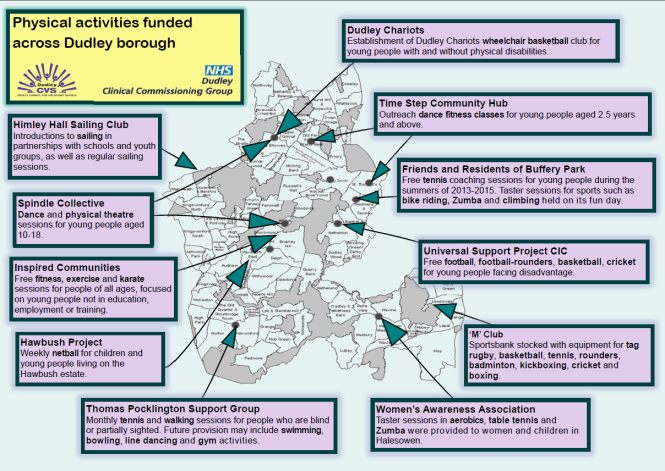You’d be forgiven for not associating landlocked Dudley with watersports! But did you know there are lots of opportunities to get on (and in!) the water without venturing too far from home? There’s the canal network, where Stourbridge Arm Canoe Club paddle; there’s the lake at Himley Hall that I once fell in after an argument with an uncooperative kayak, and which is home to Himley Hall Sailing Club; there’s all sorts going on at Dudley Watersports Centre based at Lodge Farm Reservoir in Netherton, including waterskiing and wakeboarding, sailing, scuba diving and open water swimming!
One of the newest additions to Dudley Watersports Centre is Dudley Rowing Club, a friendly group that wants to pass its love of rowing to anyone and everyone. I met with them recently to find out more about them, discuss their plans and help them to find some funders that might support what they’re trying to achieve. It’s always a pleasure to visit Dudley Watersports Centre, a real haven in the middle of a built up area!
Dudley Rowing Club is a community amateur sports club (CASC), which means it is (and always will be) set up help anyone in the community to access rowing, whatever their ability or circumstance. The people there certainly embrace that concept.
Rowing is often seen as a sport for better off people because it requires a stretch of water, a boat and someone to teach how to do it; there are obvious risks if it is not done properly and it takes time to reach a safe level. The club is working hard to make rowing accessible, allowing people to pay by instalments and running a row as you go rate of £5 per session. Dudley Rowing Club also offers rowing to a school for learning disabled children, a homelessness project, a charity for people with head injuries and a mentoring service for 18-30 year-olds who have a range of needs. The club works with the charity Access in Dudley too, getting disabled people onto the water.

As well as improving physical fitness, the club knows that rowing has other benefits including:
- Increasing people confidence: some people start off quite nervous of the water but the majority soon find that any misgivings are offset by their sense of achievement.
- Improving people’s feelings of achievement
- Developing skills such as teamwork, cooperation, loyalty and empathy
- Improving feelings of wellbeing and general positivity
- Improving at a person’s own rate and moving into roles where they mentor and support others
When the club was working on a small funding bid, I asked if they could include any case studies to help bring their club to life. Mark, the Secretary of Dudley Rowing Club shared these two stories of young people whose participation in club activities has been a real journey:
Debbie is a young person who presents as very nervous and low in confidence, she frequently seeks confirmation that she is doing things correctly and seems genuinely surprised and delighted when she is told that she is. Debbie responds well to positive criticism, she says that she loves rowing and has progressed from being very anxious about being in the stable four that we have, to now rowing on her own in a stable boat, she enjoys helping other members of her group if they get into any difficulties (getting stuck in surrounding bushes is a frequent problem for beginners) and the leaders of her project report that they have seen a significant improvement in Debbie’s confidence.
Liam is a very quiet young man, he does not initiate conversations with anyone other than his closest friend in the group; when spoken to Liam will give as short an answer as possible. He is friendly, likes to be spoken to, but is noticeably uncomfortable if a response is sought; we are sensitive to this when speaking with him. Liam was slow to pick up the skills required for rowing in the four, possibly because he could not ask for help or clarification. We have worked patiently with Liam to the point where he is now rowing well in a single and his technique is amongst the best in his group.

And Dudley Rowing Club is ambitious about providing opportunities to row at any level. As Mark says “We want our club to become sustainable and one that is known for giving fantastic opportunities for people that want to try rowing, whether for fun, fitness or to excel. Our ambitions are to:
- Build our membership, retain current members by having a great facility with excellent equipment, making us sustainable in years to come
- Introduce more people to rowing, especially those who would find the sport difficult to access, and get them as passionate about it as we are while developing their skills
- Raise the profile of our club
- Develop people’s skills and talents
The biggest thing the club is looking for at the moment is the £15,000 to buy a ‘quad’, a boat its junior members can use, as they currently have to practise at a nearby club using its equipment. Dudley Rowing Club would dearly love to bring its junior members back to Netherton as soon as possible.
For Dudley Rowing Club, being able to buy a new quad will mean that:
- It can retain its current junior members by providing attractive and competitive facilities, saving them from moving to clubs further away, or leaving the sport entirely
- It can build the junior membership as it will be able to market the facilities it has to offer and provide peace of mind to parents that the equipment is safe to use
- The organisations that currently work with Dudley Rowing Club can continue to do so, allowing people with disadvantages to access rowing
- Dudley Rowing Club can work with more schools and organisations to make rowing accessible to many more children and adults experiencing disadvantage.
- Dudley Rowing Club will be able to develop people’s soft skills, such as confidence and team work, as well as developing the technical rowing skills of those that want to progress in the sport
- The club will be able to offer routes of progression through the sport to more people
- Dudley Rowing Club will be able to engage Schools to take up rowing lessons and from this attract some of the pupils to join, helping the club to become more sustainable in the future.
If you would like to learn more about Dudley Rowing Club, join or help them, please visit the club’s Facebook page. You’ll be made really welcome.
Thank you to Dudley Rowing Club’s Facebook page for allowing me to use their excellent pictures in this blog too! I’m looking forward to working with this club more.




 And as Lynda walked us around the park earlier this week, it seems clear why this is working beautifully; it’s the relationships that the members of the Friends group have built with bowlers, residents, schools, park rangers, people from other groups. Everyone seemed to know each other and to have time for each other! It was lovely to meet Colin, a bowler who simply started teaching others to bowl a few years ago and hasn’t stopped since, building a social group that gets together for a game. I met Stuart, the Physical Activity Activator, who told us about his involvement in
And as Lynda walked us around the park earlier this week, it seems clear why this is working beautifully; it’s the relationships that the members of the Friends group have built with bowlers, residents, schools, park rangers, people from other groups. Everyone seemed to know each other and to have time for each other! It was lovely to meet Colin, a bowler who simply started teaching others to bowl a few years ago and hasn’t stopped since, building a social group that gets together for a game. I met Stuart, the Physical Activity Activator, who told us about his involvement in 

